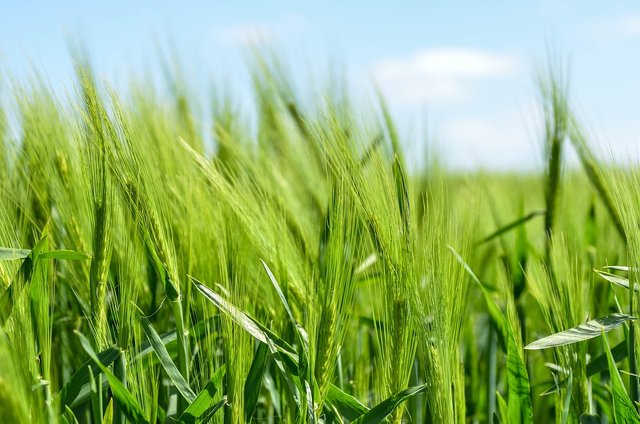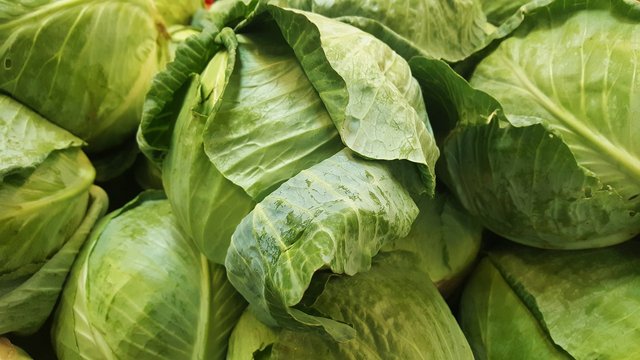
There has been a growing demand for buying local food for years now, as more people look to support local farmers and producers in their area etc for a variety of different reasons.
It might be because they want to have a better idea of where their food is coming from, maybe they believe they are purchasing higher quality products because they haven't traveled far etc, there are many reasons why someone might want to become more familiar with local growers and producers in their area.
The market in the U.S. for locally grown food has reportedly increased from roughly $5 billion back in 2008 to more than $12 billion in 2004, and it's estimated that it'll be worth more than $20 billion by 2019.
Stone suggests that farmers might need to work harder in trying to market their goods to consumers. Perhaps those farms would have seen better success if they had been more creative in trying to educate their community about what they had to offer, or worked more efficiently to try and get their products into their hands.

Some farmers who have been looking to get creative in meeting this need for feeding those in their community, have turned to technology to help. There are now apps out there such as WildKale, and online markets like FarmMatch, Farmigo, and others, that help farmers to connect with consumers, which helps consumers to establish relationships directly with the growers.
By doing this, purchasing directly from farmers, it means that more money is going directly into the pocket of the farmers and consumers are getting products fresh that are coming straight from harvest. This method of exchange also offers accountability because consumers can be comfortable in knowing exactly where their food is coming from.
One previous survey that investigated this topic, which was conducted by Yellow Pages, sought to investigate Canadian consumer behaviors on the matter and they discovered that while many Canadians report that they are interested in buying local, that isn't where their money ends up going. They are still choosing overwhelmingly to spend their money at large retailers.
Could this be the same situation for U.S. shoppers? Might there be a few people out there who are interested in supporting local farmers but they don't know what that looks like, exactly?
Growers in the region need the community to be aware of what they have to offer, before they will go looking to make an exchange for it. Thankfully, today there are a variety of different ways that they can go about doing that.
Pics:
Pixabay

I know that selling locally would most likely make us more money, but we need the market to be there first, or we’d risk losing everything. The farmers follow the market and demand. Never heard of those apps before. Might have to check them out.
Downvoting a post can decrease pending rewards and make it less visible. Common reasons:
Submit
Some farmers will offer a local basket of goods on a monthly basis with the consumer paying upfront in return for a quantity of fresh veggies. Farmers will be much more important to befriend as the Grand Solar Minimum will lower the future yields with the colder temperatures shortening the growing seasons.
Downvoting a post can decrease pending rewards and make it less visible. Common reasons:
Submit
sounds like a good arrangement
Downvoting a post can decrease pending rewards and make it less visible. Common reasons:
Submit
If the product is of quality, reasonable prices and attention is good, it will be better to buy directly from the farmer and because some have to keep fighting, it is like all business, many times we see two merchants equal one sells and the other does not, even to offer the same at the same price, the behavior of the client usually behave in this way
thank you very much for sharing this news
I wish you a great day
Downvoting a post can decrease pending rewards and make it less visible. Common reasons:
Submit
I like to shop local businesses and markets, much of it is due to my severe food allergies and less risk of contamination for me. In my experience, shopping in local markets is possible but time consuming to find farms offering their products cheaper than others and the food last longer in general. On the other hand, everyone else tends to embrace the convenience aspect of things which is why supermarkets still rule the day and people are also uninformed or don't care what they eat even if it's filled with chemicals and dyes. When I try to promote shopping local the usual response I get, it cost too much or it's not convenient. I can generally get a large box of fresh fruits and vegetables that will last us the week for $30 therefore debunking the too costly aspect. Most vendors are willing to make some deals when buying a large enough amount.
Downvoting a post can decrease pending rewards and make it less visible. Common reasons:
Submit
$30 sounds like a pretty good deal
Downvoting a post can decrease pending rewards and make it less visible. Common reasons:
Submit
The State of Alaska has an Alaska Grown sticker, it is very easy when we go into the grocery store to buy Alaska Grown foods. Especially the carrots and potatoes, you will not find a sweeter tasting carrot on the market than those from Alaska.
Downvoting a post can decrease pending rewards and make it less visible. Common reasons:
Submit
haven't heard that about the produce yet 😄
Downvoting a post can decrease pending rewards and make it less visible. Common reasons:
Submit
There is a huge local farming obsession exploding in my area. It has always been a very big focus of the area but lately with the craze it's just been booming. I also live in a rural area with a lot of farmland, that is never the less RAPIDLY growing. There is a large University nearby and the nearby "city" and all the towns stretching outward are developing more and more every year to fit in all the people moving here.
What I've also noticed lately is a surplus of local farms. A lot of young people from out of state that have either moved here to buy farm land or went to school here and decided to stay, and bought farmland. It's a big trend going on. What that leads to is a gross excess of supply in a place that although it is growing rapidly, it's not growing rapidly enough to meet the supply with demand.
I see so many people confused in the stores now. Every week there are new products from different local farms or vendors. I don't know if that is similar to what is going on in other areas, but it seems to be at least part of the problem here.
Downvoting a post can decrease pending rewards and make it less visible. Common reasons:
Submit
wow, an amazing article inspired ...
Farmers in the US and European countries must be very lucky, because the government strongly supports them from all the problems faced by farmers.
by the way,
today the farmers in my country are screaming not knowing where to go.
at the time of harvest, the government actually imports a lot of goods, and does not match what is needed.
their treatment is beyond common sense.
big businessmen conspired with the government.
how not, amid the rice harvest, they import rice and exceed 2 million tons.
salt is exceeded from the import requirement of 1.5 million tons.
and another crazy decision has been taken.
maybe you ask, where is that country?
that country is in the best place on earth, namely Indonesia.
Downvoting a post can decrease pending rewards and make it less visible. Common reasons:
Submit
Some of turkish farmers united and established Torku company. The reason this was intermediaries buy their products x price and sell this products 3x price to facilities or dealers. After some operations they sell this products 5x price to consumer. Farmers give their products to Torku and Torku use this products and sell theese for 3x-4x price to consumer. So consumer buy cheaper price , farmers gain more money. I think that is only way of save farmer's laber.
Downvoting a post can decrease pending rewards and make it less visible. Common reasons:
Submit